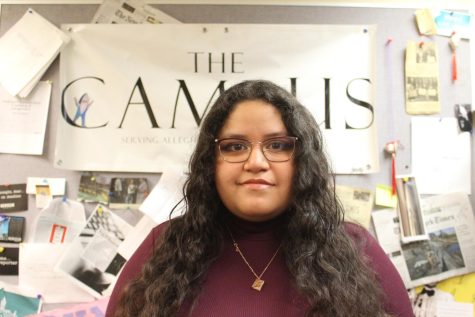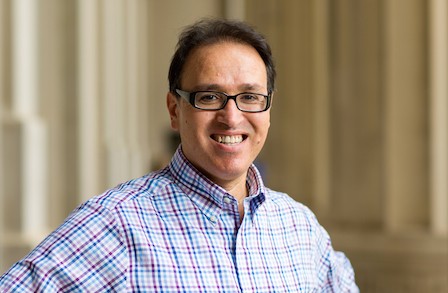Impostor syndrome a problem among students
Impostor syndrome is an experience many people face, especially college students. According to Concordia University, impostor syndrome causes people to become suspicious of their success and believe they did not earn or have the skills to achieve their past accomplishments.
The Intercultural Advocates hosted a discussion about impostor syndrome amongst college students on April 13 in the Henderson Campus Center.
Intercultural Advocate Maya Francisco, ’24, explained the purpose of having an impostor syndrome discussion on campus.
“I would like to make this more of an annual event simply because it is not talked about enough,” Francisco said. “The feeling of inadequacy shouldn’t happen because everyone works hard and everyone deserves to feel confident in themselves and if they are in a space where they don’t feel like they are worth being there, that needs to change.”
Before the discussion, a TED Talk was played to explain what impostor syndrome is. The talk discussed the isolating effect of referring to the experience as a “syndrome” when most people have been challenged with it.
The discussion started with an activity where each student wrote about their accomplishments and why they deserve them on a green piece of paper. The activity was meant to help students think about why they are worthy of their accomplishments.
Barry Crentsil, ’23, spoke about one of his biggest accomplishments as a first-generation college student.
“I feel like an achievement I have to acknowledge is getting into college,” Crentsil said. “Being first-gen, having that burden to go to college is a lot, especially not knowing people that have gone to college.”
After students shared their accomplishments and why they are worthy of them, the next activity was to write down feelings of doubt they have about themselves and their achievements on a red paper. The students were then asked to crumble up the paper and throw it into the center of the room to symbolically rid themselves of those negative thoughts.
The discussion inspired many people to speak up about how they have had to overcome impostor syndrome to feel more comfortable with their positions in life.
Director of the IDEAS Center Darnell Tucker shared his experience with impostor syndrome throughout his life and revealed that impostor syndrome can persist outside of college classrooms.
“I feel like when things go wrong, I am the first person to blame myself, but when good things happen I don’t solely credit myself,” Tucker said. “Even when accepting this job, I was so glad for my connections and thought they probably praised me on the phone. I did not think I should get it because of me but because of who I put as references.”
Impostor syndrome is an incredibly common experience. According to Best Colleges, 20% of students experience impostor syndrome while at college and 82% of all people face it at some point in their life. Despite this prevalence, impostor syndrome is still rarely discussed.
“We need to have these conversations,” Francisco said. “The worst part about this is that people feel like they are alone and that is simply because most of us don’t talk about it with friends.”
Impostor syndrome is an especially common experience amongst students from marginalized backgrounds. The IDEAS Center wants students to have conversations about how they can feel more confident in their abilities.
“Whether that’s being diverse or first-gen and being in spaces where you don’t see yourself a lot, it is important to affirm within yourself that you belong and deserve the accolades you are getting,” Tucker said.
Intercultural Advocate Crystal Hernandez, ’23, shared how conducting research for the discussion increased her understanding of impostor syndrome.
“I personally knew what it was like to experience impostor syndrome from my first year entering college,” Hernandez said. “But until now I had never gotten into depth with it.”
The Intercultural Advocates want to have more discussions on campus to ensure more students are participating in conversations that could help them navigate college.
“The mission statement of Intercultural Advocates is students who are able to support and advocate for the students and facilitate conversations that aren’t talked about,” Francisco said.
The discussion is part of a bigger goal the IDEAS Center wants to fulfill: to increase engagement with the students.
“This is an initiative underneath IDEAS: to have more student-led voices creating open dialogue and open environments,” Tucker said. “We want students to have conversations around representation and the impostor phenomenon is one of the things that come up from students.”

Evelyn Zavala is a senior from San Francisco. She is majoring in Business and minoring in Journalism in the Public Interest. This is her fourth year on...





